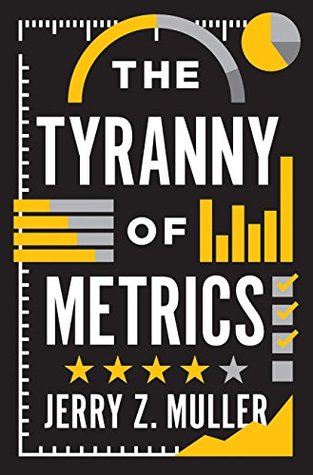More on this book
Community
Kindle Notes & Highlights
Accountability ought to mean being held responsible for one’s actions. But by a sort of linguistic sleight of hand, accountability has come to mean demonstrating success through standardized measurement, as if only that which can be counted really counts.
The most characteristic feature of metric fixation is the aspiration to replace judgment based on experience with standardized measurement.
If what is actually measured is a reasonable proxy for what is intended to be measured, and if it is combined with judgment, then measurement can help practitioners to assess their own performance, both for individuals and for organizations. But problems arise when such measures become the criteria used to reward and punish—when metrics become the basis of pay-for-performance or ratings.
Metric fixation leads to a diversion of resources away from frontline producers toward managers, administrators, and those who gather and manipulate data.
When proponents of metrics advocate “accountability,” they tacitly combine two meanings of the word. On the one hand, to be accountable means to be responsible. But it can also mean “capable of being counted.” Advocates of “accountability” typically assume that only by counting can institutions be truly responsible. Performance is therefore equated with what can be reduced to standardized measurements. When proponents of metrics demand “transparency” they often insinuate that probity requires making explicit and visible as much information as possible. The result is the demand for ever more
...more
Metric fixation is the persistence of these beliefs despite their unintended negative consequences when they are put into practice.6 It occurs because not everything that is important is measureable, and much that is measurable is unimportant.
Most organizations have multiple purposes, and that which is measured and rewarded tends to become the focus of attention, at the expense of other essential goals. Similarly, many jobs have multiple facets, and measuring only a few aspects creates incentives to neglect the rest.8 When organizations committed to metrics wake up to this fact, they typically add more performance measures—which creates a cascade of data, data that becomes ever less useful, while gathering it sucks up more and more time and resources.
Trying to force people to conform their work to preestablished numerical goals tends to stifle innovation and creativity—valuable qualities in most settings. And it almost inevitably leads to a valuation of short-term goals over long-term purposes.
Edmund Phelps, a Nobel Prize winning economist, claims in his book Mass Flourishing: How Grassroots Innovation Created Jobs, Challenge, and Change that one of the virtues of capitalism is its ability to provide “the experience of mental stimulation, the challenge of new problems to solve, the chance to try the new, and the excitement of venturing into the unknown.”9 That is indeed a possibility under capitalism. But those subject to performance metrics are forced to focus their efforts on limited goals, imposed by others, who may not understand the work that they do. For the workers under
...more


